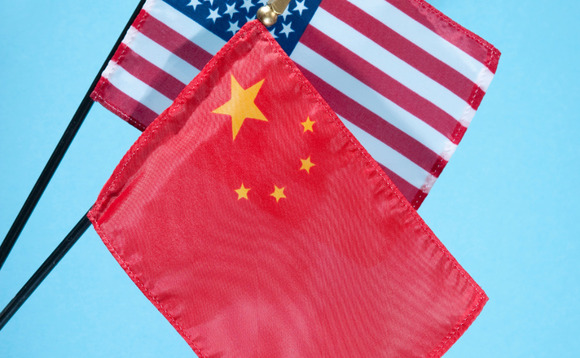The latest round in the US-China "cold war" will result in all Chinese companies delisting from the US, Jorry Nøddekær, manager of Polar Capital's Emerging Market Stars fund, told International Investment's sister brand Investment Week.
Political tension between the two nations have been ongoing for years and many Chinese companies are now making the call to delist from the US ahead of the 2024 deadline as a way to manage the business risk. Indeed, five major state-owned Chinese companies have already announced a voluntarily delist from US exchanges.
Nøddekær said that Chinese stocks taking up a dual listing in the US and Hong Kong was not new but recently firms had been moving the primary listing out of the US and back to Hong Kong.
He added: "[Some] are considering delisting from the US completely because there is already a high risk that they will be they will be forced to do so anyway, and then have the primary listing in Hong Kong and the secondary listing in China.
"We do expect that literally all companies will be making that move. A number of key companies have already been doing it and we expect everybody to follow."
Andy Rothman, portfolio manager at Matthews Asia, echoed the idea that a Chinese company having a Hong Kong listing could provide a "hedge against the possibility of forced delisting from New York" if regulators cannot resolve the Public Company Accounting Oversight Board inspection issue.
Deep Dive: Long-term prospects for China remain bright despite continued uncertainty
After the managers made their comments, Washington and Beijing reached a landmark deal last week (26 August) that would give US regulators access to audits of Chinese companies that are listed on American exchanges.
First reported by the FT, Beijing has refused this level of access before on the grounds of protecting state secrets.
The new deal is hoped to be a 2.0 of the 2013 attempt, when Beijing originally agreed to allow US regulators to inspect the audits of China's large tach companies, but officials were met with miles of red tape.
According to the report, this is by no means an end to the US-China feud or trade issues.
Securities and Exchange Commission chair Gary Gensler said in a statement that if this arrangement worked around 200 China-based issuers will "face prohibitions on trading of their securities in the US if they continue to use those audit firms".
Geopolitical risks were not the only factor driving this listing trend, according to Aubrey Capital's director Mark Martyrossian.
He said: "So far this year, the value of Chinese IPOs is up 7% year on year and is double the value of those in the US. From the beginning of April until the end of May (when total lockdown was in full swing), there was an IPO posted every day.
"Investment banks embedded staff in the offices of their clients and regulatory officials were camped out in the stock exchange for the duration ensuring these deals completed. A level of commitment that underlies the intention to insure against the ending of the American depositary receipts (ADR) gravy train."
Darius McDermott: Fund picks for China
Animosity between the two global superpowers has accelerated in recent weeks as the People's Liberation Army conducted seven days of unprecedented exercises around Taiwan in August, in response to the controversial visit to Taipei of US House of Representatives speaker Nancy Pelosi at the start of the month.
China claims sovereignty over Taiwan and Xi Jinping took Pelosi's visit as a pointed declaration of the US defending the region.
This military action has raised alarm bells of China's possible invasion of Taiwan, particularly given the backdrop of Putin's invasion of Ukraine reaching its sixth month, an event which began with ‘routine' military drills on the latter's borders.
Nøddekær said that he did not see China committing to a full-on invasion, having seen the global reaction Russia faced for its attack on Ukraine.
The war in Ukraine has made less likely that a "hot conflict" over Taiwan would break out, Nøddekær added.
He explained that China's president would be focused on the upcoming election in November and strengthening the party's common prosperity objectives. China has been dealing with major economic headwinds this year as a consequence of its ‘zero-Covid' policy, which experts told Investment Week had significantly dampened the near-term outlook for China.
"China had absolutely no wish of having hot conflict now, and neither does the US."





